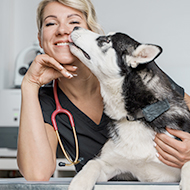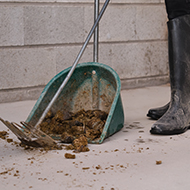Antibiotic Amnesty to begin, with high turnout expected
The campaign runs throughout November.
The Responsible Use of Medicines Alliance – Companion Animal and Equine (RUMA CA&E) will soon launch Antibiotic Amnesty 2024, as it expects more practices to take part in its November campaign.
This is the third year that the group has run Antibiotic Amnesty, which advocates for the safe use and disposal of antibiotics. The group hopes that better public awareness of safe antibiotic use will help address antimicrobial resistance (AMR) and prevent environmental pollution.
The campaign asks practices to set up antibiotic disposal bins for pet owners to dispose of out-of-date or unused antibiotics in. Team members should also have proactive conversations with clients about how they can use antibiotics safely.
The results of a 2022 PDSA survey revealed that 94 per cent of pet owners now know about the potential risks of using leftover antibiotics, including the issues with using the antibiotics for other illnesses or for other animals.
However, there was still evidence of members of the public using and disposing of antibiotics incorrectly. The survey found that 38 per cent held on to antibiotics for potential future use, while 46 per cent would dispose of antibiotics in household waste or down the drain.
During last year’s campaign, Antibiotic Amnesty saw the return of over 2,458 antibiotic tablets – more than three times the previous total. It also received 160 oral antibiotic suspensions and 119 topical preparations which contained antibiotics.
As part of Antibiotic Amnesty 2024, which is sponsored by Zoetis, RUMA CA&E has published an antibiotic toolkit for practices which are taking part this November.
The toolkit includes a range of educational materials, including leaflets, posters and animations. There is also a selection of practice guidance documents and client hand-outs to support veterinary teams with the campaign.
Steve Howard, secretary general of RUMA CA&E, said: “As a profession we not only have a duty of care to prescribe antibiotics responsibly, something the profession already takes very seriously, but we also have a role in educating pet owners on AMR.
“This includes discussing with them why antibiotics aren’t always the right solution if a pet is ill and if they are, how they should be used and that disposing of any leftovers needs to be done responsibly via a vet practice and not in household waste, which could contribute to antimicrobial resistance and pollute the environment.”
More information about Antibiotic Amnesty 2024 can be found here.
Image © RUMA CA&E






 Birmingham Dogs Home has issued an urgent winter appeal as it faces more challenges over the Christmas period.
Birmingham Dogs Home has issued an urgent winter appeal as it faces more challenges over the Christmas period.
